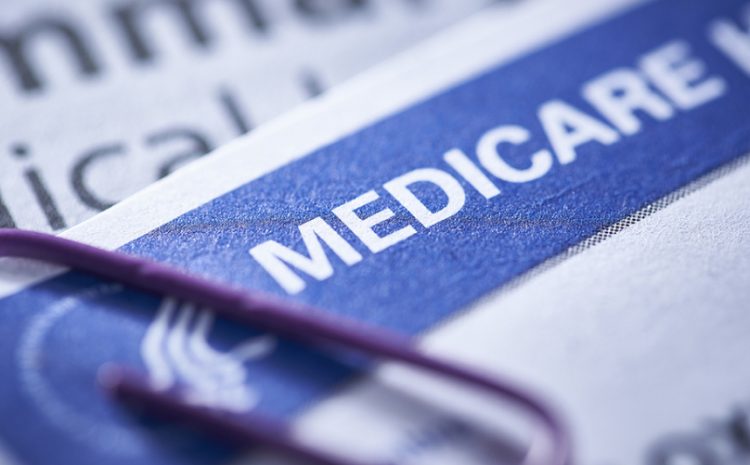

Principal writer, insurance and medicare advisory
MedicarePal principal writer Derick Dolivo covers Medicare. Smith believes in the power of education to help individuals make smart financial decis
- Written on August 10, 2025
- Updated August 17, 2025
At MedicarePal we strive to help you make smarter financial decisions. While we adhere to strict
Key Principles
We value your trust. Our mission is to provide readers with accurate and unbiased information, and we have editorial standards in place to ensure that happens. Our editors and reporters thoroughly fact-check editorial content to ensure the information you’re reading is accurate. We maintain a firewall between our advertisers and our editorial team. Our editorial team does not receive direct compensation from our advertisers.
MedicarePal follows a strict editorial policy, so you can trust that our content is honest and accurate. Our award-winning editors and reporters create honest and accurate content to help you make the right financial decisions. The content created by our editorial staff is objective, factual, and not influenced by our advertisers.
We’re transparent about how we are able to bring quality content, competitive rates, and useful tools to you by explaining how we make money.
Medicarepal is an independent, advertising-supported publisher and comparison service. We are compensated in exchange for placement of sponsored products and, services, or by you clicking on certain links posted on our site. Therefore, this compensation may impact how, where and in what order products appear within listing categories, except where prohibited by law for our mortgage, home equity and other home lending products. Other factors, such as our own proprietary website rules and whether a product is offered in your area or at your self-selected credit score range can also impact how and where products appear on this site. While we strive to provide a wide range offers, Bankrate does not include information about every financial or credit product or service.
Medicaid is a vital government program in the United States that provides healthcare coverage to eligible low-income individuals and families. Medicaid enrollment is the process through which individuals apply for and gain access to this essential coverage. In this comprehensive guide, we will explore what Medicaid enrollment entails, who is eligible, the application process, and the significance of Medicaid in ensuring access to healthcare for those in need.
What is Medicaid?
Medicaid is a joint federal and state program that offers healthcare coverage to individuals and families with limited income and resources. Established in 1965 alongside Medicare, Medicaid plays a crucial role in providing access to medical services, including doctor’s visits, hospital care, prescription drugs, and preventive care, to those who might otherwise be unable to afford healthcare coverage.
Medicaid Eligibility
Eligibility for Medicaid is primarily determined by income and family size. While the specific eligibility criteria may vary by state, some key factors to consider include:
- Income:
- Medicaid eligibility is often based on the federal poverty level (FPL). Income limits are expressed as a percentage of the FPL and vary by state.
- In states that have expanded Medicaid under the Affordable Care Act (ACA), eligibility thresholds are generally higher.
- Some states offer Medicaid to adults without dependent children who meet specific income and other requirements.
- Family Size:
- The size of your household, including dependents and family members, is considered when determining eligibility.
- Medicaid considers household size to assess income limits and eligibility.
- Citizenship and Immigration Status:
- In most cases, you must be a U.S. citizen or a qualified non-citizen with legal immigration status to qualify for Medicaid.
- Eligibility rules for non-citizens may vary, so it’s essential to check your state’s specific requirements.
- Disability Status:
- Some individuals with disabilities may qualify for Medicaid based on their disability status and income, even if they do not meet traditional eligibility criteria.
- Age:
- Medicaid provides coverage to various age groups, including children, adults, and seniors.
- Specific eligibility criteria may apply to each age group.
- Other Factors:
- Some states have additional programs that provide Medicaid coverage to specific populations, such as pregnant women, low-income parents, and individuals with certain medical conditions.
Medicaid Enrollment Process
Applying for Medicaid involves a structured process that may vary by state but generally follows these steps:
- Determine Eligibility:
- Use online tools, calculators, or contact your state’s Medicaid office to assess your eligibility based on income, household size, and other factors.
- Gather Required Documents:
- Collect the necessary documents, including proof of income, identity, citizenship or immigration status, and any other documents requested by your state.
- Typical documents may include pay stubs, tax returns, birth certificates, Social Security cards, and immigration papers.
- Choose a Medicaid Plan:
- Some states have managed care programs, where beneficiaries choose from a list of approved healthcare plans.
- If your state offers managed care, research the available plans and select one that best meets your healthcare needs.
- Complete the Application:
- Apply for Medicaid through your state’s Medicaid agency or through the Health Insurance Marketplace (if applicable).
- You can apply online, by phone, by mail, or in person, depending on your state’s application options.
- The application will require you to provide personal information, income details, and documentation.
- Be thorough and accurate when filling out the application to avoid delays.
- Submit the Application:
- Send your completed application and supporting documents to your state’s Medicaid agency or the designated application processing center.
- Follow the submission instructions provided by your state.
- Application Review:
- Your state’s Medicaid agency will review your application to determine eligibility.
- This process may take several weeks, during which you may be asked for additional information or documents.
- Notification of Eligibility:
- You will receive a notice from your state’s Medicaid agency indicating whether you are eligible for Medicaid.
- If approved, the notice will include information about your coverage, effective date, and any additional steps you need to take.
- If denied, the notice will explain the reasons for the denial and provide instructions on how to appeal the decision if you believe it is incorrect.
Medicaid Expansion under the Affordable Care Act (ACA)
The Affordable Care Act (ACA), often referred to as Obamacare, allowed states to expand Medicaid eligibility to include more low-income adults. As of my knowledge cutoff date in January 2022, Medicaid expansion had been adopted by the majority of states, resulting in increased coverage for many previously ineligible individuals.
If you reside in a state that has expanded Medicaid under the ACA, you may qualify for Medicaid even if you were previously ineligible based on income alone. Be sure to check your state’s Medicaid expansion status and eligibility criteria to determine if you qualify.
Significance of Medicaid Enrollment
Medicaid enrollment is a critical step in gaining access to healthcare services for those who may otherwise go without necessary medical care. Here are some key reasons why Medicaid enrollment is significant:
- Access to Healthcare:
- Medicaid ensures that eligible individuals and families have access to essential healthcare services, including preventive care, doctor’s visits, hospital stays, and prescription medications.
- Financial Protection:
- Medicaid helps protect beneficiaries from overwhelming medical expenses and debt by covering the costs of covered services.
- This financial protection is especially important for those with limited income and resources.
- Improved Health Outcomes:
- Access to Medicaid can lead to better health outcomes, early disease detection, and timely medical interventions.
- Preventive services covered by Medicaid can help individuals stay healthier.
- Support for Vulnerable Populations:
- Medicaid provides support to vulnerable populations, including low-income children, pregnant women, individuals with disabilities, and seniors.
- It plays a crucial role in addressing health disparities and promoting equity in healthcare.
Medicaid enrollment is the gateway to essential healthcare coverage for millions of Americans in need. Applying for Medicaid can be a complex process, but it is well worth the effort for those who meet the eligibility criteria. If you or someone you know may be eligible for Medicaid, take the time to research your state’s specific requirements, gather the necessary documents, and follow the application process outlined by your state’s Medicaid agency. Access to healthcare is a fundamental right, and Medicaid is a vital program that helps ensure that right becomes a reality for those in need.
Was this page helpful?
Medicare Pal adheres to stringent sourcing guidelines, prioritizing primary sources including medical organizations, government agencies, academic institutions, and scholarly journals with peer review. Discover the methods we use to guarantee the accuracy, comprehensiveness, and impartiality of our content in our editorial guidelines.

Do You Need Help With Medicare?
Call us Now 1-866-706-7293











